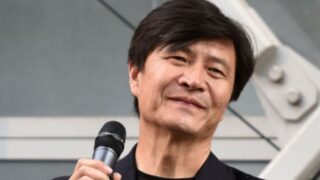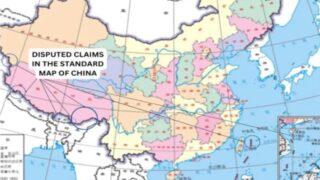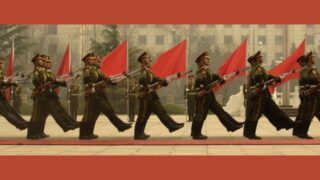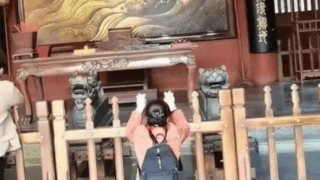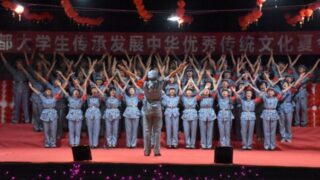The present Italian leadership expressed the intention to walk out of the 2019 Belt and Road agreement signed by the previous government. So far, it has not happened.
by Marco Respinti
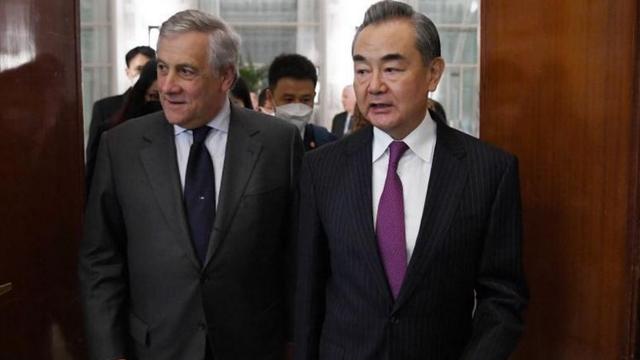

On February 16, 2023, a delegation from the People’s Republic of China (PRC) visited Italy‒a country which remains a case study for the whole world.
Chinese senior diplomat and politician Wang Yi met the Italian Minister of Foreign Affairs, Antonio Tajani, in Rome. PRC’s Foreign Minister from 2013 to 2022, State Councilor since 2018, and a member of the Chinese Communist Party (CCP)’s Politburo since 2022, on January 1, 2023, Wang became the Director of the Office of the Central Foreign Affairs Commission of the CCP. This appointment makes him the highest ranked diplomat of the Chinese regime, and President Xi Jinping’s top foreign policy adviser.
Tajani is a politician who has proved to be highly sensitive to human rights and religious liberty issues. Italy is waiting for the appointment of a Special Envoy for Persecuted Christians (who obviously are persecuted also in the PRC), a new position whose creation Tajani recently announced.
Tajani surely knows that Wang is a man who defined as “gossip” the worldwide denunciation of transformation through education camps in Xinjiang (which its non-Han inhabitants call East Turkestan), deemed as a “preposterous” “fabricated” “rumor” the worldwide accusation of genocide against Uyghurs and other Turkic people waged by the PRC in that region, labelled as “nothing but fabricated lies and disinformation” the global indictment of what he defined as the “so-called systematic ‘forced labor’ or ‘re-education camp’ in Xinjiang,” and dismissed as “full of prejudice against China” and “arrogance” a question by a Canadian journalist on the state of human rights in the PRC on June 1, 2016, during a joint press conference in Ottawa with Canadian Minister of Foreign Affairs, Stéphane Dion.
Surely, Tajani also knows that on October 2022 Wang stated that the PRC “firmly support Russia, under the leadership of President Putin […] to further establish Russia’s status as a major power on the international stage,” and that the head of the Chinese diplomacy is going to make the first visit in Russia of a PRC representative since the Russian war of aggression against Ukraine.
Tajani certainly knows all this. Both human rights in the PRC and the PRC’s ties with Russia should have been the focus of his meeting with Wang. At least publicly, however, there was silence on human rights, while a deep concern was expressed for the role that China may play in the Russia-Ukraine scenario. Italy is one of the countries insisting that China exerts its influence on Russia and persuade it to end its war of aggression in Ukraine. It seems that this concern absorbed any other question when Tajani met Wang.
There was in fact no room even for a discussion of the nefarious Memorandum of Understanding signed by China and Italy in March 2019. The Memorandum, signed within the framework of the so-called “Belt and Road Initiative,” is nefarious for many reasons. It is a political blank check that the then Deputy Premier as well as Labour and Industry Minister, Luigi Di Maio, and his chief advisor on China, economist Michele Geraci, gifted to a totalitarian state where no elections are held since 1949, all is in the bloody hands of one ruling party, and the situation of human rights and religious liberty is deplorable. A totalitarian country was allowed to infiltrate a democratic state at a political, economic and media level, and one wonders who exactly inspired the agreement. Unintelligibly and uselessly, the Memorandum tied a free nation to a regime that needs yet to answer for its crimes against humanity. In short, the inconceivable nature of the Memorandum itself is the reason why Italy is a case study that should interest and worry the whole world.


Wang mentioned the Memorandum to Tajani exclusively to call for further implementations of its provisions, as he did when he met Italian President Sergio Mattarella on the following day, February 17, 2023. However, the Italian governments that followed the one on behalf of which Di Maio signed the Memorandum in 2019 had announced revisions. So far, these revisions did not come, and it seems they were not discussed in the meeting between Wang and Tajani.
Laudably, the present Italian government has been openly critical of the Memorandum and had hinted that it can be not only revised but repealed entirely. This month, however, an important opportunity was missed. We understand that all possible efforts to stop the Russian aggression on Ukraine should be pursued, including by trying to involve China. However, it may seem naïve to place all bets on China. And inacceptable to do it at the cost of tolerating even more Chinese injustice.


